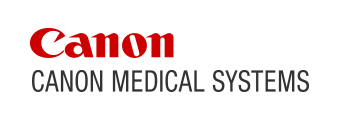News | Press Releases
March 8, 2006
TOSHIBA'S NEW ULTRASOUND CARDIAC PACKAGE CAN HELP REDUCE UNSUCCESSFUL PACEMAKER SURGERY
New Aplio CV Cardio Package Designed to Further Enhance the Accuracy and Efficiency of Ultrasound Imaging and Improve Overall Cardiac Capabilities
ATLANTA, March 08, 2006 - Offering the latest technology to enhance the delivery of cardiac care, Toshiba America Medical Systems, Inc. (TAMS) today introduced a new comprehensive cardio offering for its Aplio™ CV-the company's all-digital ultrasound system for advanced cardiovascular applications. The technology allows for improvements in a variety of cardiac procedures including stress echo, contrast harmonics and tissue Doppler imaging which quantifies cardiac resynchronization therapy (CRT) and biventricular pacing. This can improve patient care by eliminating the risk of unnecessary pacemaker implant surgery-a procedure that still has a significant number of non-responders. The new cardiac package will be available on all new Aplio CV systems, and is a simple field upgrade for existing Aplio CV users.
"We're very excited to introduce our new Aplio CV cardiac package, and the benefits it will present for both cardiologists and their patients-specifically in the area of CRT," said Gordon Parhar, director, Ultrasound Business Unit, TAMS. "Before the availability of this technology, many patients underwent surgical procedures to receive pacemakers, only to find out afterward that a pacemaker was of no benefit. Our new technology takes the guesswork out of screening which patients are candidates for a pacemaker, eliminating needless surgeries and enhancing patient care overall."
The new comprehensive cardio package features several proprietary innovations designed to meet the complex needs of today's cardiologist, including Dyssynchrony Imaging (DI) part of and Tissue Doppler Imaging Quantification (TDIQ) package. DI is a rapid visual assessment to evaluate the electrical timing events within the heart.
Toshiba's DI technique aids cardiologists in the quantification of left ventricular mechanical dyssynchrony by providing a color-coded display that demonstrates the timing of events within the myocardium of the heart. Early mechanical events are "green" and severely delayed events are displayed "red," allowing clinicians to quickly identify the presence and severity of the patient's dyssynchronous events.
"Ultrasound technology has gone beyond the ECG to help identify patients who would benefit from cardiac resynchronization therapy," said Lawrence S. Rosenthal, MD, PhD, FACC, associate professor of medicine and director, section of cardiac electrophysiology and pacing, University of Massachusetts Medical School. "It has also helped patients with disease and bi-ventricular pacing in which we have not seen improvement. With the guidance of this new Toshiba technology, Dysynchrony Imaging, we have been able to effectively screen and then optimize those devices. In some cases, patients have felt the difference almost immediately. With this new technology, the screening process is so efficient we are able to rapidly screen patients who would benefit from CRT."
TDIQ software performs various analyses by Angle Corrected Displacement and Strain to measure myocardial viability. TSI (Tissue Strain Imaging) evaluates and clearly displays the regional myocardial strain quantitatively during systole. Tissue tracking and angle correction for radial information, performed with these advanced applications, expands the range of quantitative evaluations available. TSI, along with displacement imaging, also can be utilized for bi-ventricular pacing.
For more information about the Aplio CV, TAMS and its wide range of medical imaging products, please visit www.medical.toshiba.com.
Aplio™ is a trademark of Toshiba Medical Systems Corporation, Inc.



